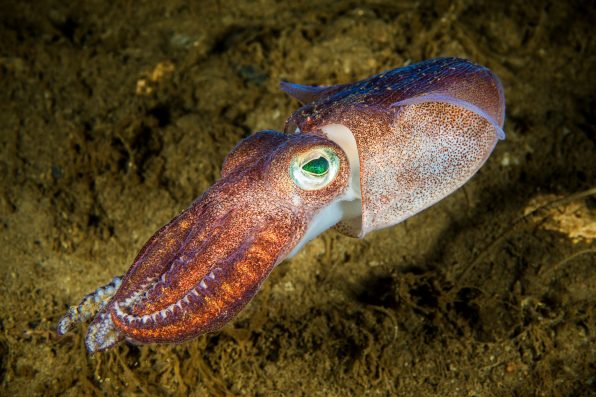Off the coast of Mexico, a female deep-sea squid with giant eggs tucked within her tentacles has been spotted during an expedition to the Gulf of California.
A team of scientists utilized a remotely operated vehicle (ROV) to capture footage of the creature at a depth of more than 8,000 feet. The squid is from a new species in the family Gonatidae.
The mother was carrying about 40 translucent eggs. Each of them was roughly twice as large as the eggs of squids that the scientists had previously encountered.
Not much is known about deep-sea squids since they live way down underwater in a dark, cold environment. So, the new video offers a rare peek into the details of their life cycle.
“The deep sea is the largest living space on Earth, and there is a lot left to be discovered,” said Steven Haddock, the expedition leader and a scientist at the Monterey Bay Aquarium Research Institute (MBARI). “Our unexpected encounter with a squid brooding giant eggs caught the attention of everyone in the ship’s control room.”
It is especially uncommon to witness a deep-sea squid protecting its eggs after laying them. Most squids tend to leave their eggs attached to the ocean floor or adrift in the water column.
According to Henk-Jan Hoving, a deep-sea biologist from the GEOMAR Helmholtz Center for Ocean Research in Germany, the mothers often die after their eggs are hatched due to the laborious process of brooding.
The researchers came across the brooding squid in 2015 while on an expedition to the Gulf of California to study animals that inhabit environments with low levels of oxygen.
When they sent ROVs down, they saw the mother at around 8,418 feet deep. After a recent closer examination of the footage, they realized this species of squid had never been identified before, but it likely belongs to the family Gonatidae.

Sign up for Chip Chick’s newsletter and get stories like this delivered to your inbox.


